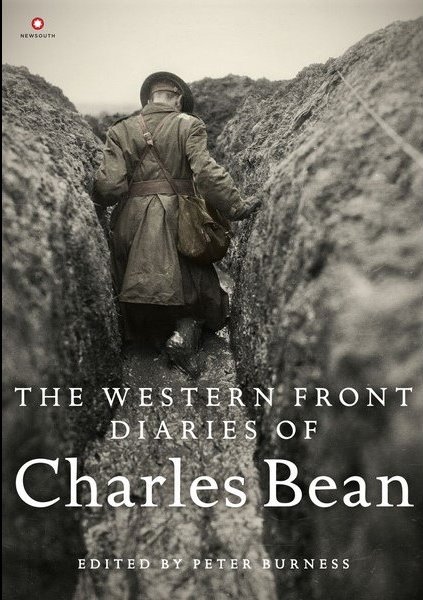Charles Bean plays the one of the chief roles in Australian understanding of the First World War. He reported on it from the beginning of the AIF’s involvement to the end of the war and beyond. He observed it at close quarters throughout. He was appointed official historian and in producing the renowned twelve volumes change the way official histories were written: his volumes recounted the war not only the way commanders saw it but also especially how it affected the individuals who fought it. His meticulous diaries formed the framework of his histories. To cap his achievements, as if they were in themselves not enough, he provided the inspiration for the Australian War Memorial.

Hardback 644pp RRP: $79.99
There have been several biographies of Bean and several more books that have examined his writings. Extracts of his diaries have also been published. Is there a place for this volume? The answer is a resounding yes!
This is a massive volume of well over 600 pages, weighing in at well over 1kg. It is very well illustrated but it is far from being a decorative coffee-table book. Bean’s Western Front diaries have been, as you would expect, transcribed in full. There has been no censorship, even though the occasional remark can make the reader wince. The transcription has sensitively expanded the telegraphese of the diary so that the narrative flows – without changing it urgency – no mean feat. It is extensively annotated and complemented with entries from other diaries such as that of Frank Hurley. Burness’ footnotes about the people Bean mentions add colour to the diary: we find that Captain Boccard ‘was a battle-scarred and decorated officer … He had lost a leg. – He died in Melbourne in 1935.’
The photographs supplementing the text are well chosen from the treasure house at the War Memorial and are accurately described. Bean’s sketches appear and some of the lesser-seen paintings from the Memorial’s collection are a useful addition. The index is first-class. As you would expect, it is the narrative that grasps the reader’s attention. Charles Bean was a sensitive man with good education. He was a keen and critical observer and the immediacy of his record in its full glory is the great benefit of this well-constructed book. It is one that all military history enthusiasts should consider purchasing.
Let us hope that this is not the last word on Charles Bean. A similar volume on his Gallipoli diaries is certainly called for.
Reviewed for RUSIV by Mike O’Brien, December 2018
Contact Royal United Services Institute about this article.






